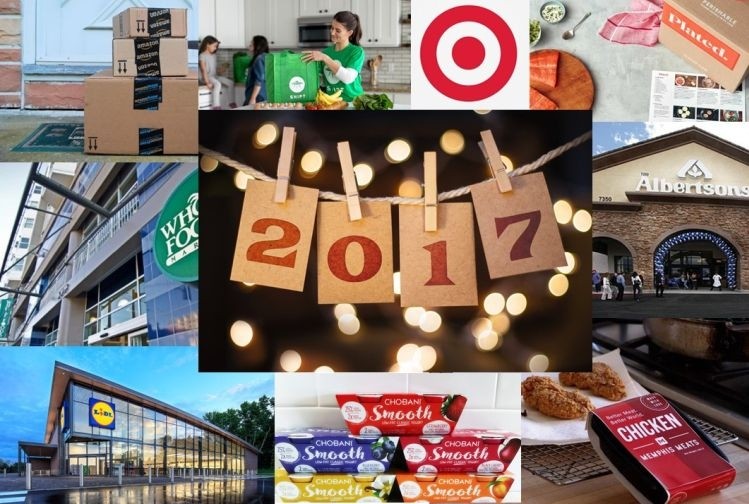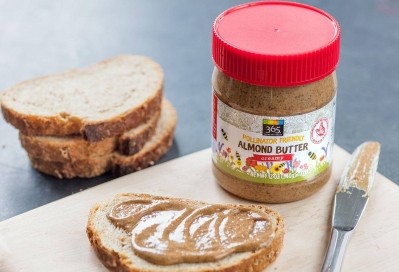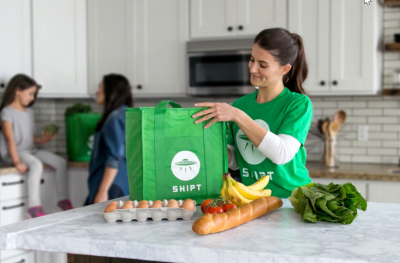What was the biggest surprise of 2017 for the food industry?

As in previous years, Rabobank asked (in confidence): ‘What surprised you the most in the last 12 months?’ and the overwhelming answer was the Amazon/Whole Foods tie up – not the fact that Whole Foods was acquired (the arrival of activist investors made that seem more than likely), but that fact that Amazon, rather than a conventional bricks & mortar retailer, wrote the check.
As to how the bride and groom might interact in this unusual marriage, some predicted cultural clashes, while others felt Amazon would breathe new life into Whole Foods, “a struggling 400-ish store chain that appeared to be heading toward irrelevance.”
Perhaps more surprising than the deal itself, however, was the reaction to the deal, which, it seems, is still sending shock waves throughout the industry, and driving continued M&A activity in the direct to consumer space (Target/Shipt, Albertsons/Plated), said one commentator:
“The way stock markets, analysts, and other industry participants responded really exposed a level of fear that was clearly right below the surface in an industry that has already absorbed a lot of channel change in the last 10 to 15 years.”
Indeed, the shock waves the Amazon/Whole Foods tie-up caused are almost as interesting as the deal itself, suggested Nick Fereday, executive director, food & consumer trends at Rabobank: “Perhaps we should sum up with a moment of self-reflection and ask ourselves, What does our collective surprise regarding this deal say about our world view and the food bubble we all live in?”
"I think the Amazon/Whole Foods deal was a wake up call about taking e-commerce seriously, especially for regional supermarkets.
"But it's even more interesting how everyone was so floored by it... looking back it shouldn't have been such a surprise."
As for other topics that have been keeping Rabobank’s industry contacts awake at night, here are some highlights:
Kraft Heinz’s ‘amateurish’ approach to Unilever: Kraft Heinz’s “seemingly amateurish” approach to Unilever (its overtures were firmly rejected in February) “was a source of wonder to many,” said Fereday at Rabobank. The abortive approach was also surmised as the reason “bigger M&A did not happen” in 2017, with one respondent describing the hostile bid as “the ultimate clash between the sustainable capitalism model vs. the short-term gains model of 3G.”
You paid how much? Several respondents raised eyebrows at the multiples being paid for some emerging brands, with one noting, “I really question the return on investment… have the commercialization opportunities been fully vetted?” Another expressed surprise at “how grossly they are overpaying for their acquisitions of emerging companies… no way X is worth anywhere close to $Y.”
The failure of big food to ‘connect’ with consumers: Many respondents argued that larger food companies “continue to struggle to connect with the American consumer and further contribute to this challenge by defending the status quo,” with one respondent asking: “How many of the large companies are still in denial about consumer changes?”
One attributed this to there being “too many small avenues of innovation, but no clear highway—where no obvious winner is emerging.” However, others praised big CPG initiatives, from the creation of corporate VC funds to M&A to setting up or getting involved in food incubators and accelerators.
The sudden exodus from the GMA: The sudden exodus of huge names from the Grocery Manufacturers Association (Unilever, Tyson Foods, Campbell Soup, Nestlé, Dean Foods, Mars) represents a “breakdown in the consensus” on how to approach the changing consumer and food landscape, said Fereday.
“Some of our readers have heard rumors of other companies too… Given this, and the herd-like nature of many food companies, we expect more to follow suit. As food companies try and stay relevant, and aligned to the needs and values of today’s consumer, it appears that their associations are not moving at the same speed, leading to these fractures— increasingly, they are finding themselves on opposite sides of the debate.
“The GMA has traditionally been a defender of the status quo.”
Meal kits: Several respondents expressed skepticism over the viability of the meal kit model, with one claiming that the “economics just don't work right now.”
The meteoric rise of Halo Top: The fact that Halo Top has emerged as the #1 selling ice cream brand in the US caught many by surprise, and again seemed to prove that the big boys (Unilever, Nestlé) had been caught off guard.
The resilience of Soylent: The continuing appeal of meal replacement brand Soylent – which has weathered multiple recalls and a ban in Canada – surprised, but impressed, some commentators.
Snacks away! The fact that so many new brands “continue to thrive within the snack bar category” amazed one respondent.
Treat yourself! Another expressed surprise at the continued growth of sweet, indulgent baked goods, despite a growing focus on health and wellness: “It continues to surprise me that, for past six years straight, sweet and indulgent baked goods categories are rising in sales.”
Pro-GMO? What surprised one respondent was the fact that, “No company in the industry has been able to develop a winning GMO-based food solution for consumers that could begin to establish GMO as a trusted technology choice.”

















